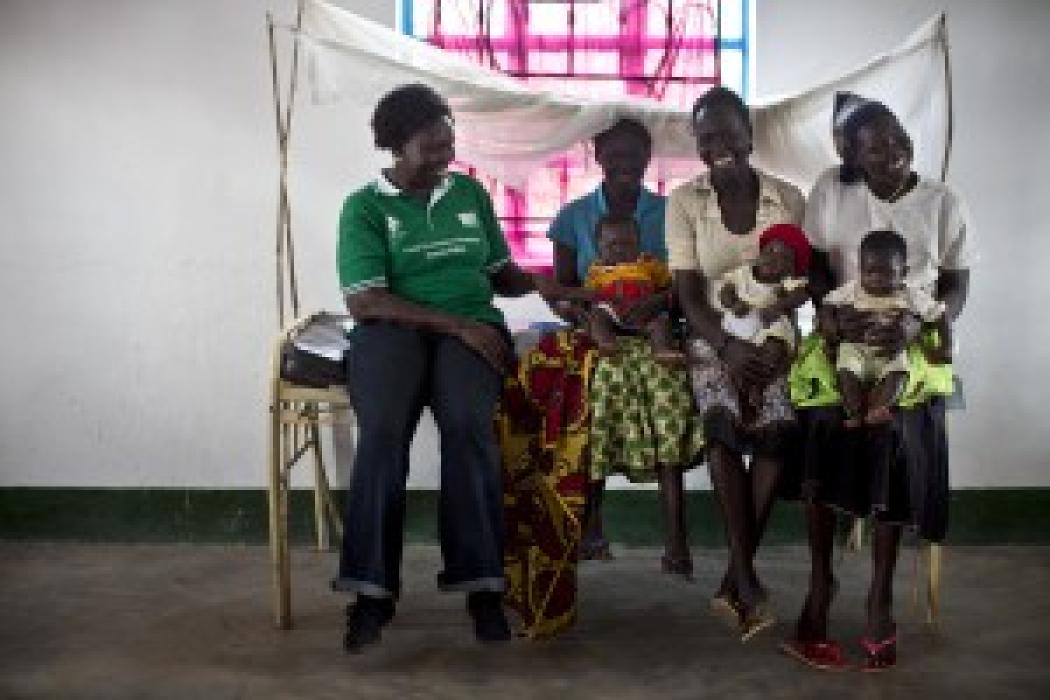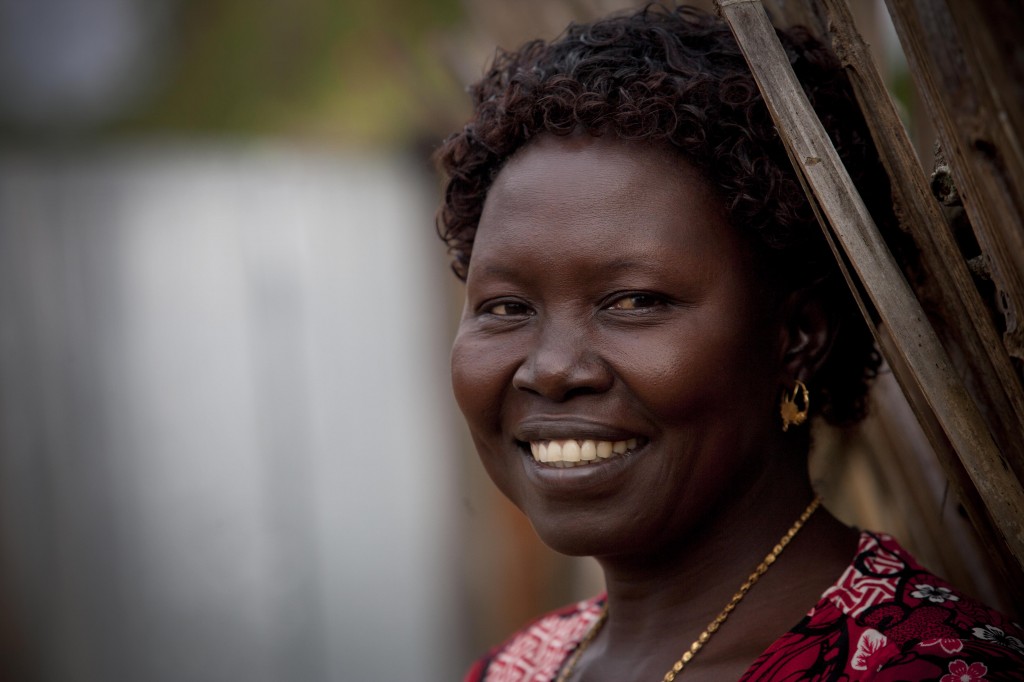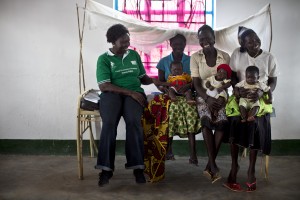Community Mobilizer in South Sudan Helps Women Survive Childbirth

By Ann LoLordo, Jhpiego
Lanyi, South Sudan – Not much can keep Mary Rose Dalaka from ensuring pregnant women in this verdant farming community receive the lifesaving care they need to survive childbirth.
When the motorbike she was riding on got stuck in knee-high mud, this nurse-midwife hopped off and slogged through the muck to keep going. She has been known to walk for hours in a malaria-infested area to retrieve vital health records.
“The insects fear her,’’ says her colleague, Isabella “Bella” Ochieng.
That kind of determination is essential in a nascent country like South Sudan. This nation emerged from a 20-year civil war with a lack of skilled health providers, degraded health facilities, a prevalence of home births and the highest maternal death rate in the world. When South Sudanese health officials decided a year ago to adopt an innovative, proven approach to prevent women from bleeding to death after home births, Dalaka spent six months mobilizing tribal, religious and family leaders in the Mundri East community in support of the intervention.
“She is patient, understands her community and is deeply committed,” said Sheena Currie, Jhpiego’s Senior Maternal Health Advisor for the Maternal and Child Health Integrated Program (MCHIP), the U.S. Agency for International Development program that funds the postpartum hemorrhage (PPH) prevention initiative in two states of South Sudan. “I think this program in Mundri East would not have succeeded without Mary Rose and Bella.”
The PPH prevention effort is a key element of the Integrated Service Delivery Project, a five-year project under MCHIP to assist the South Sudanese government in providing a basic package of health services to women and children in Western and Central Equatoria States, thereby reducing maternal and newborn deaths. Led by Jhpiego in collaboration with Save the Children, PSI and John Snow, Inc. (JSI), MCHIP works with the Ministry of Health and provides support to 11 nongovernmental organizations, including the Mundri Relief and Development Association (MRDA), to implement community and facility activities.
Since the PPH prevention program began in September 2013, more than 1,000 pregnant women have been educated on safe birth practices, counseled on giving birth at a health facility and taught how to self-administer misoprostol—a drug that prevents severe bleeding after birth—if they must deliver at home. Their teachers are non-literate village women who were recruited and trained by Dalaka, a vivacious mother of four who works as a community mobilizer for MRDA. Ochieng, the Program Coordinator for MCHIP in South Sudan, works in tandem with Dalaka, traveling from village to health center to support 260 volunteers and 60 health care providers working in 33 health facilities.
The volunteer home health promoters are mothers, grandmothers and traditional birth attendants who have seen for themselves the devastating consequences of kari orori ndra, the Mora phrase for “much bleeding.” Now, they are visiting pregnant women in their homes and sharing information that can give mothers and babies a healthy start in life. They educate them on safe birth practices and newborn care, advise attendance at prenatal care clinics and urge delivery at a health facility with a skilled provider.
Recognizing that the majority of South Sudanese women give birth at home, the health volunteers go one step further to minimize the risk of PPH—they counsel the expectant mothers on the use of misoprostol, a drug suited for community distribution because it doesn’t need refrigeration. The health volunteers provide the three tablets during the eighth month of pregnancy and instruct women on when to take them—immediately following birth. Since the PPH prevention program began last fall, there have been no reports of health complications or misuse of the drug.
“Mary Rose has gone far and beyond her role to ensure that the home health promoters were selected, trained and supported and [are] reporting the data,” said Currie, an experienced midwife who has trained health care providers in maternal and newborn care throughout the developing world.
Dalaka’s work as a champion for PPH prevention in the community also led MRDA to recognize her as their staff person of the year. “We are privileged to have her,” said Light Wilson Aganwa, Executive Director. “She has translated knowledge on the ground.”
The ultimate result of Dalaka’s commitment and unrelenting efforts was most effectively articulated by Monica Angye, a Lanyi Community Midwife, when she said, “Our mothers are surviving.”


